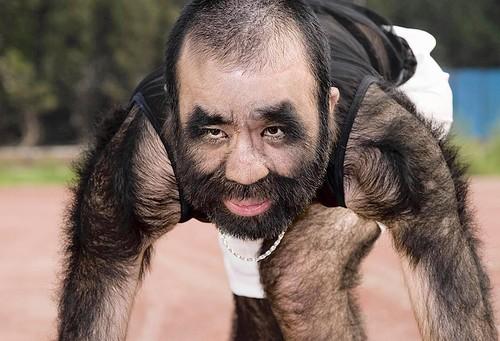Terry Thone
Member
My first post and if I break any forum rules I apologize for any offense and only ask for the correct way to go about posting this correctly!
I am a Creationist in that I believe that all that is became because of the creator. I am an evolutionist in that I believe things change/evolve. Simply stated for a purpose!
My following question is not to insult or for sarcasm. I have a lot of questions that place doubt on the bible and evolution and are for another post.
From what I've read thus far we(humans) are the only primates that have no fur and sweat over most of our skin. Why are we the only ones that have no fur? Shouldn't there be numerous other primates with out fur?
When did the first hairless primates develop ethics past that of other primates with fur?
I'm assuming that the vast majority of primates have an alpha male. Let me know if this assumption is incorrect. If so how did ethics come to be? Who were the first primates to quit beating each other for the women and agree to marriage?
I know the questions are rudimentary but I don't have the time, patience or mental abilities to pose them any better.
I am a Creationist in that I believe that all that is became because of the creator. I am an evolutionist in that I believe things change/evolve. Simply stated for a purpose!
My following question is not to insult or for sarcasm. I have a lot of questions that place doubt on the bible and evolution and are for another post.
From what I've read thus far we(humans) are the only primates that have no fur and sweat over most of our skin. Why are we the only ones that have no fur? Shouldn't there be numerous other primates with out fur?
When did the first hairless primates develop ethics past that of other primates with fur?
I'm assuming that the vast majority of primates have an alpha male. Let me know if this assumption is incorrect. If so how did ethics come to be? Who were the first primates to quit beating each other for the women and agree to marriage?
I know the questions are rudimentary but I don't have the time, patience or mental abilities to pose them any better.








